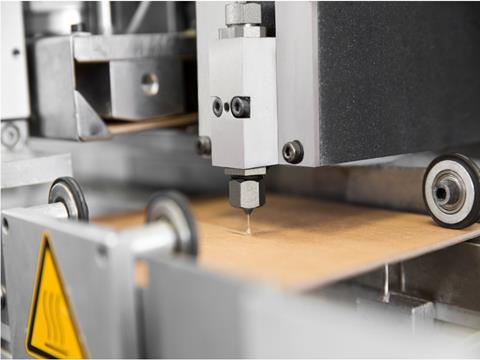
Henkel’s Adhesive Technologies business unit is set to introduce the Technomelt Supra ECO range, which it claims has the potential to exceed more than 80% bio-based raw material input without compromising on performance.
According to the company, the industry standard for hot melt adhesives with packaging applications is up to 50% bio-based raw material. However, it notes that when bio-based content exceeded the 50% threshold, processing inefficiencies arouse for producers, such a slower line speeds or shorter equipment cleaning cycles, reportedly preventing companies from moving beyond this amount.
The Technomelt Supra ECO range was developed by the team at Henkel Adhesive Technologies, which aimed to create a hot melt solution with a higher sustainability rating without changing the process performance in production.
Sergio Mattos, head of product development hot melt adhesives North America at Henkel, comments: “This completely new line of hot melts eclipses every solution currently available.
“With possibilities to exceed more than 80 percent of bio-based raw material input, without having to pull back on performance, we were able to create an innovative technology that will lead our industry into the future, as this is just the beginning.
“We put a clear focus on the maximum overall impact we can have for our partners, customers and the consumer with this new adhesive solution.
“In this way we are also able to push our partners along the value chain in the right direction of investing in these solutions as demand for this kind of adhesives will rise, especially against the background of the mass balance concept in which we strongly believe for the future of procurement.”
During lifecycle analysis, Technomelt Supra ECO range was reportedly found to be highly efficient while also offering a reduced CO2 output during procurement and production.
Mattos adds: “As we had a very close look at the values we can deliver, we found out that our solutions are not only able to reduce CO2 output during procurement and production, but furthermore bind CO2 if you look at the overall balance for the global warming potential in 100 years (GWP100).
“We were very happy when we saw the results of the calculations – a negative cradle-to-gate product carbon footprint is the best possible outcome.”
Henkel says that it is aiming to support the packaging industry in reaching sustainability targets with its new hot melt solution.
According to Stephan Hähnert, business development manager of sustainability for consumer goods adhesives at Henkel: “When we as adhesive manufacturer are involved in the packaging design process early, we are able to contribute decisively to enable the development of new products, that think about circular economy targets like recycling right from the start as well.
“With our bio-based hot melt Technomelt Supra ECO range we have the goal to motivate further innovation and establish a new standard in packaging.
“And we will lead by positive example as we do everything to implement the mass balance concept at Henkel’s manufacturing plants and have our processes certified by ISCC (International Sustainability & Carbon Certification). This ensures traceability of bio-based material throughout the supply chain and assures its sustainable sourcing.”
Earlier this year, Henkel Adhesive Technologies launched a new hot melt adhesive that allegedly reduces or even eliminates the need for film and pallet stretch wrap during palletising.
















